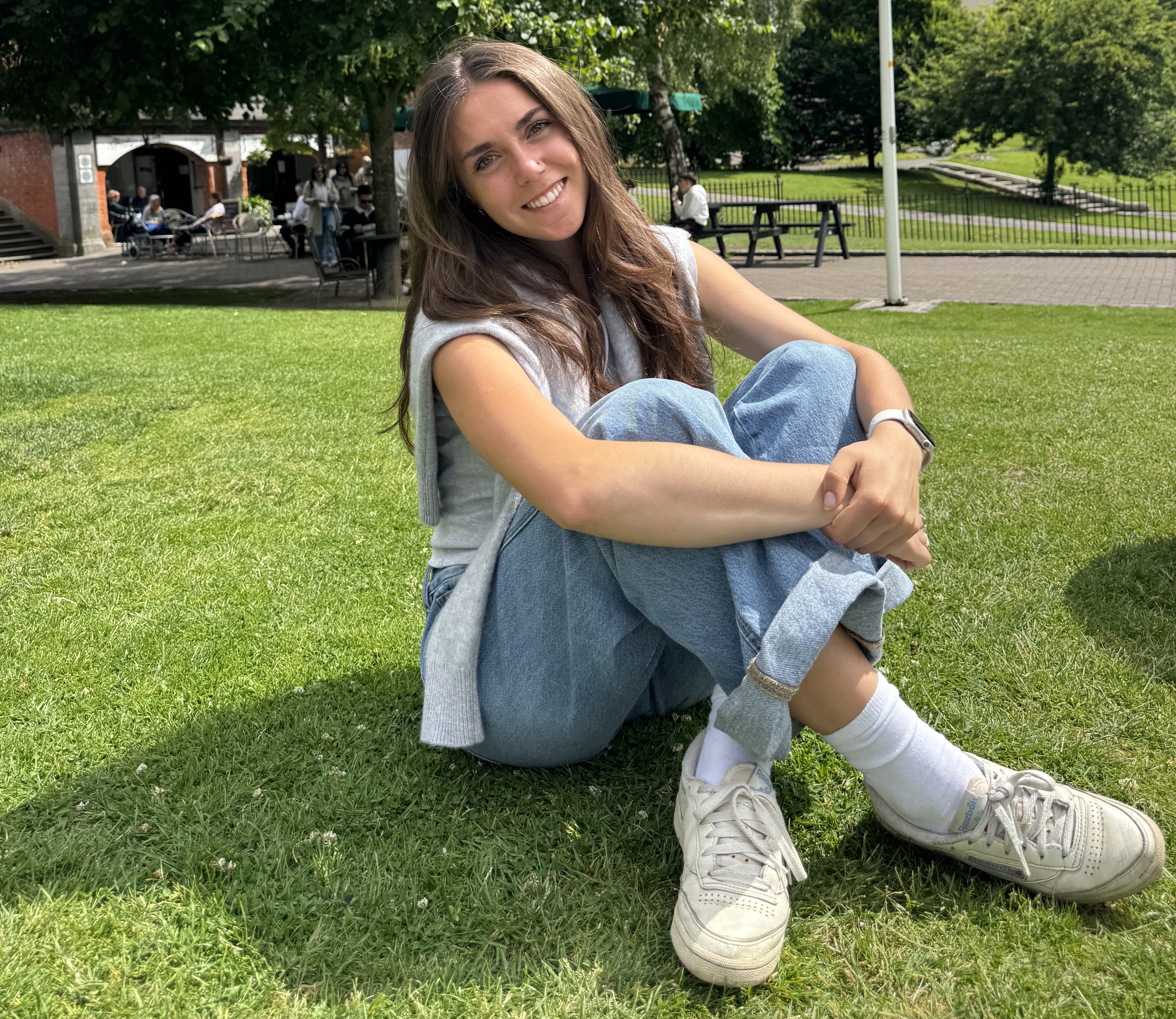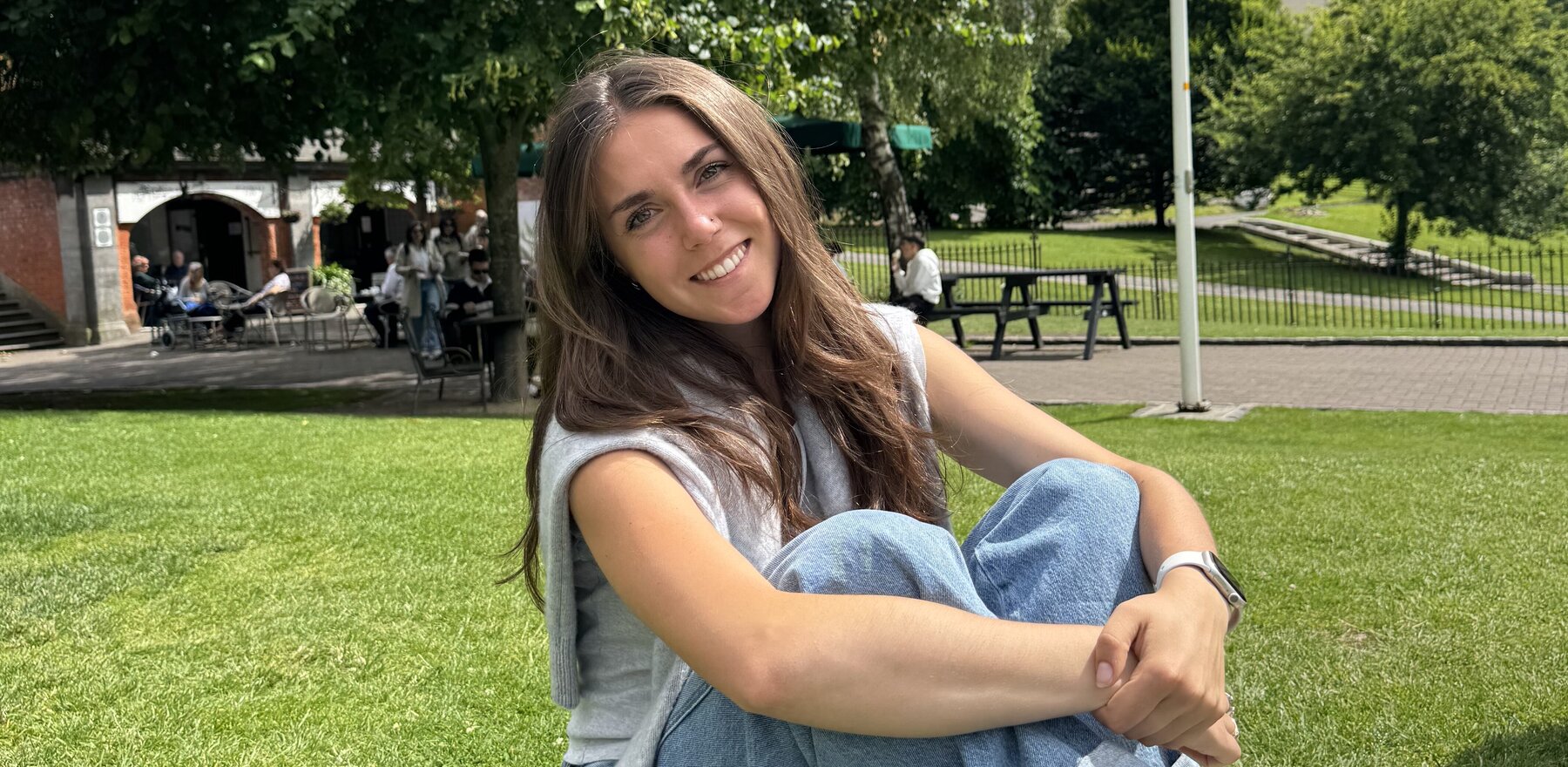Victoria de Bruyn’s summer at the University of Galway in Ireland highlights the global research opportunities available to Lehigh students.
Victoria de Bruyn, a bioengineering student at Lehigh University, spent her summer researching implantable drug delivery devices to improve therapeutic treatment for patients with Type 1 diabetes at the University of Galway in Ireland. Her work represents part of a research placement program that has been recently revitalized after pandemic disruptions.

De Bruyn worked in the laboratory of Eimear Dolan, a University Research Fellow and Associate Professor in Biomedical Engineering. There, she developed devices for long-term chronic diseases and was specifically in the diabetes group.
The devices she worked with are still in animal testing phases, de Bruyn said.
"The idea is that the device is implanted in the mouse or the rat, and it basically has a little catheter, like a needle, that is inserted into the device, and the drug is released from this kind of porous membrane," she said. "Imagine it's like a tea bag, and it releases the drug into the body."
De Bruyn said her role focused on predicting how the devices would function in practice.
"My direct project was monitoring or designing an analytical model to essentially predict pressure within the needle that inserts or delivers the therapy into the device," she said. "So we were predicting pressure both within the needle as well as the tissue outside of the device based on how blocked the needle was."
De Bruyn participated in this research through the Lehigh in Ireland study abroad program, which has been providing opportunities to students from various disciplines for about 20 years. She learned of the opportunity through Katy Rene, Assistant Director of Study Abroad, whom she knew from the separate Lehigh Launch program.
Rene said de Bruyn was among 16 Lehigh students doing supervised research through the Lehigh in Ireland program, along with seven taking a consulting course, for a total of 23 Lehigh participants. The program had historically hosted 12 to 26 students each year, before COVID-19 disruptions.
De Bruyn was the only Lehigh student in her laboratory, working alongside Ph.D. candidates, master's students, and two University of Galway undergraduates. She said she especially enjoyed working with the undergraduates because it gave her a better sense of what they were studying and how they experienced life in Galway.
"Being in Galway is such a special experience, especially in the summer," de Bruyn said. "When a lot of people think of Ireland, they just think of Dublin, but Galway, you get to understand a much better sense of Irish culture."
She added, "The summer is so nice because they have a lot of arts festivals and things that make Galway special like the music scene that really shines through.”
De Bruyn's placement highlights the hands-on research opportunities that distinguish Lehigh's Ireland program. Rather than taking standard coursework, students work directly in University of Galway laboratories on real research projects.
"We were very fortunate that the people in Galway who sponsored it gave them really good projects," said Vincent Munley, Professor Emeritus of Economics at Lehigh, who helped develop the program.
Munley said Lehigh faculty serve as mentors and handle grading, while Galway faculty provide the research hosting and guidance. The program, which Munley launched following his 2002 Fulbright Scholar Award at the University of Galway, had been running successfully for nearly two decades before the COVID-19 pandemic.
"For the two or three years of the pandemic, almost all the study abroad programs just collapsed," Munley said. "And so post-pandemic, the hope was that it could rejuvenate."
The revitalization effort required rebuilding connections between faculty at both institutions. Munley continues his own research collaborations in Ireland, and played a role in reestablishing these partnerships by visiting University of Galway faculty who had previously hosted students.
"I was going over anyway, doing research," Munley said. "I said, I'll stop by and talk to the people who, in the past, had sponsored the students, for some of whom the communication channel had just sort of fallen off.”
The international research experience, Munley said, represents "a really good investment in a person's human capital" that provides career benefits "not just for obtaining your initial position, but really for your whole career."
De Bruyn said a highlight of her time abroad was attending a hurling match, Ireland’s fast-paced national sport.
"It's like a mix between baseball, lacrosse, field hockey—it's crazy, but it was so much fun," she said. "I wouldn't have gone if it weren’t for those suggestions from my lab partners in Galway."
Rene, who has managed the program for 10 years, recruits students and coordinates research placements by connecting with University of Galway faculty and ensuring there are available spots.
The research placement connected de Bruyn with Lesley Chow, Associate Professor of Bioengineering at Lehigh, who serves as the research coordinator for bioengineering students.
De Bruyn said the research coordinator advised students to explore the University of Galway website, identify professors whose work interested them, and send back a short list so placements could be arranged.
